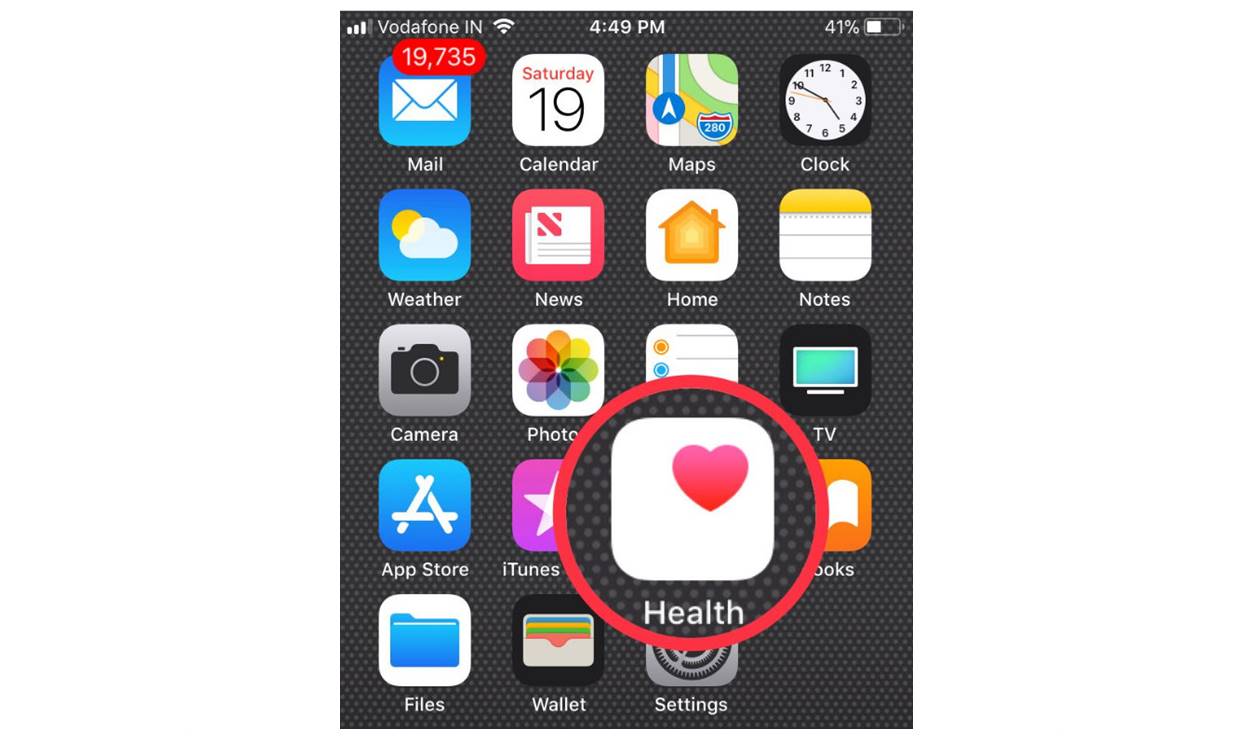

Featured
What Is Health Screening
Published: September 6, 2023
Learn about the importance of health screening and discover the featured tests that can help detect potential health issues early.
Definition of Health Screening
Health screening is a proactive approach to assess an individual’s overall health and detect potential illnesses or diseases before they become severe. It involves a series of tests, examinations, and assessments that are conducted by healthcare professionals to identify any potential health risks or abnormalities.
The primary objective of health screening is to catch diseases early on, when they are more treatable and manageable. It allows individuals to take preventive measures and make necessary lifestyle changes to reduce the risk of developing chronic conditions. Health screenings can be conducted as a routine check-up or based on specific risk factors identified by healthcare providers.
Health screenings cover a wide range of areas, including but not limited to cardiovascular health, cancer detection, diabetes, bone density, cholesterol levels, blood pressure, and mental health. These screenings can provide valuable information about an individual’s overall health status, specific body functions, and potential risk factors for various diseases.
It is important to note that health screenings are different from diagnostic tests. While a screening aims to identify potential health issues, a diagnostic test is specifically designed to confirm the presence of a particular disease or condition.
A variety of screening methods may be used, depending on the specific health concerns being addressed. These can include physical examinations, laboratory tests, imaging studies, genetic screenings, and questionnaires to assess lifestyle and family history.
In summary, health screening is a proactive measure that involves a series of tests and assessments to identify potential health risks, detect early signs of diseases, and guide individuals towards preventive measures. It plays a crucial role in maintaining and promoting overall health and wellbeing.
Importance of Health Screening
Health screening is of paramount importance in maintaining good health and preventing potential health issues. It offers numerous benefits that can positively impact an individual’s overall well-being. Here are some key reasons why health screening is important:
- Early Detection of Diseases: Health screening helps in the early detection of diseases or conditions, allowing for prompt treatment and better management. With early intervention, the chances of successful treatment and recovery are significantly higher.
- Prevention: Screenings identify potential risk factors and provide an opportunity to take preventive measures. By knowing the risk factors, individuals can make necessary lifestyle modifications, such as adopting a healthy diet, exercising regularly, and quitting smoking, to reduce the chances of developing chronic diseases.
- Peace of Mind: Regular health screenings provide peace of mind by assuring individuals that they are in good health or allowing them to address any health concerns proactively. It reduces anxiety and promotes mental well-being.
- Improved Outcomes: Timely detection and treatment through health screenings can significantly improve treatment outcomes. By detecting diseases or conditions in their early stages, medical interventions can be more effective and less invasive.
- Cost Savings: Preventive health screenings can lead to cost savings in the long run. Early detection and management of diseases can prevent complications that result in costly medical treatments or procedures.
- Health Awareness: Regular screenings provide individuals with a better understanding of their overall health status. This knowledge empowers them to make informed decisions about their lifestyle and take proactive steps to improve their health.
- Customized Healthcare: Health screenings help healthcare providers tailor healthcare plans and interventions based on an individual’s specific health needs and risk factors. This personalized approach enhances the effectiveness of treatments and promotes overall wellness.
In summary, health screening is crucial for early detection, prevention, improved outcomes, cost savings, and overall health awareness. By undergoing regular screenings, individuals can take control of their health, identify potential health risks, and make informed choices that promote a healthier and happier life.
Types of Health Screening
Health screening encompasses a wide range of tests and assessments that focus on different aspects of an individual’s health. Here are some common types of health screenings:
- Cardiovascular Screening: This type of screening assesses the risk of cardiovascular diseases, such as heart disease and stroke. It may include measuring blood pressure, cholesterol levels, and conducting an electrocardiogram (ECG) to evaluate heart function.
- Cancer Screening: Cancer screenings aim to detect early signs of specific types of cancer before symptoms develop. Popular cancer screenings include mammograms for breast cancer, Pap smears for cervical cancer, colonoscopies for colorectal cancer, and PSA tests for prostate cancer.
- Diabetes Screening: Diabetes screening involves measuring blood glucose levels to assess the risk of developing diabetes. This can be done through a fasting blood glucose test or an oral glucose tolerance test.
- Bone Density Screening: This screening is used to assess the strength and density of bones, particularly for osteoporosis. It is commonly done using a dual-energy X-ray absorptiometry (DXA) scan.
- Cholesterol Screening: Cholesterol screening measures the levels of different types of cholesterol in the blood. High cholesterol levels can be a risk factor for heart disease and stroke.
- Blood Pressure Screening: Blood pressure screening is a simple test done to measure the force of blood against the walls of the arteries. High blood pressure can lead to various health problems, including heart disease and stroke.
- Mental Health Screening: Mental health screenings are designed to identify potential mental health conditions, such as depression, anxiety, or substance abuse. These screenings usually involve self-report questionnaires and interviews with healthcare professionals.
It is important to note that the types of health screenings recommended may vary based on factors such as age, sex, family history, and lifestyle choices. Healthcare professionals can guide individuals on the specific screenings that are most appropriate for their individual circumstances.
In summary, there are various types of health screenings available, covering different aspects of health ranging from cardiovascular health to cancer detection, diabetes, bone density, cholesterol levels, and mental health. These screenings play a crucial role in identifying potential health risks and allowing for early intervention and prevention.
Procedures Involved in Health Screening
Health screening involves a series of procedures that are tailored to assess specific aspects of an individual’s health. These procedures may vary depending on the type of screening and the specific health concerns being addressed. Here are some common procedures involved in health screening:
- Physical Examination: A physical examination is often the first step in a health screening. It involves a comprehensive assessment of an individual’s overall health, including checking vital signs such as blood pressure, heart rate, and temperature. The healthcare provider may also examine various body systems, such as the heart, lungs, abdomen, and skin.
- Laboratory Tests: Health screenings often include various laboratory tests to evaluate different aspects of health. Blood tests, urine tests, and stool tests may be performed to assess factors such as cholesterol levels, blood glucose levels, kidney function, liver function, and the presence of any abnormalities or indicators of specific diseases.
- Imaging Studies: Depending on the health concerns being addressed, imaging studies such as X-rays, ultrasounds, CT scans, or MRI scans may be conducted to visualize internal organs, bones, or other structures in the body. These tests can help detect abnormalities, tumors, fractures, or other potential health issues.
- Genetic Screening: Genetic screenings may be recommended in cases where there is a family history of certain genetic conditions or when there is a concern for inherited diseases. These screenings involve analyzing an individual’s genetic makeup to identify any genetic abnormalities or predispositions.
- Questionnaires or Surveys: In some cases, health screenings may involve the completion of questionnaires or surveys to assess an individual’s lifestyle choices, such as diet, exercise habits, smoking, alcohol consumption, and mental health status. These responses can provide valuable insights into potential risk factors and guide further evaluations.
- Medical History Assessment: Healthcare providers typically conduct a thorough medical history assessment during health screenings. This includes gathering information about personal medical history, family medical history, current symptoms, previous diagnoses, and medication use. A comprehensive understanding of an individual’s medical history is crucial in determining potential risks and appropriate screening protocols.
It is important to note that the specific procedures involved in a health screening may vary based on an individual’s age, sex, medical history, and specific risk factors. Healthcare professionals will tailor the screening process to address the specific needs and concerns of each individual.
In summary, health screenings involve a range of procedures such as physical examinations, laboratory tests, imaging studies, genetic screenings, questionnaires, and medical history assessments. These procedures collectively provide comprehensive insights into an individual’s health status and help healthcare professionals identify potential health risks or abnormalities.
Benefits of Health Screening
Health screening offers a wide range of benefits that contribute to overall health and well-being. By undergoing regular screenings, individuals can reap the following advantages:
- Early Detection: One of the primary benefits of health screening is early detection of potential health issues. Screenings can identify signs of diseases or abnormalities before symptoms arise, allowing for prompt medical intervention. Early detection often leads to more effective treatment and better outcomes.
- Preventive Measures: Health screenings provide individuals with valuable information about their health risks and enable them to take preventive measures. Through screenings, individuals can identify lifestyle modifications they need to make, such as adopting healthier eating habits, increasing physical activity, or quitting smoking, to reduce the risk of developing chronic conditions.
- Improved Treatment Outcomes: Detecting health conditions at an early stage allows for timely intervention, which can lead to improved treatment outcomes. Early detection enables healthcare professionals to implement the most appropriate treatment strategies that may be less invasive and more successful in managing the condition.
- Peace of Mind: Regular health screenings provide peace of mind by assuring individuals that their health is being actively monitored. Screening results can help alleviate anxiety and offer reassurance about one’s overall health status.
- Cost Savings: Early detection and prevention through health screenings can lead to cost savings in the long run. By identifying potential health issues before they become severe, individuals can avoid expensive medical treatments or procedures that may result from complications associated with undetected conditions.
- Empowered Decision Making: Health screenings empower individuals to make informed decisions about their health. By understanding their health risks and areas of concern, individuals can work with healthcare professionals to develop personalized health plans that suit their specific needs.
- Quality of Life: Regular health screenings contribute to an improved quality of life. By addressing potential health issues early on, individuals can proactively manage their health, reduce the impact of chronic conditions, and maintain optimum physical and mental well-being.
It is worth noting that the benefits of health screening may vary depending on individual factors, such as age, sex, family history, and lifestyle choices. Healthcare professionals can guide individuals on the appropriate screenings to undergo based on their specific circumstances.
In summary, health screening offers numerous benefits, including early detection of diseases, preventive measures, improved treatment outcomes, peace of mind, cost savings, empowered decision making, and an enhanced quality of life. Regular screenings play a vital role in maintaining and promoting overall health and well-being.
Limitations and Risks of Health Screening
While health screening can provide valuable insights into an individual’s health status, it is important to be aware of the limitations and potential risks associated with these screenings. Here are some key considerations:
- False Positives and False Negatives: Screening tests can produce false positive or false negative results. False positives occur when a test indicates the presence of a condition when none exists, leading to unnecessary anxiety and further invasive testing. False negatives occur when a test fails to identify a condition that is actually present, providing a false sense of security.
- Overdiagnosis and Overtreatment: Some health screenings may lead to the identification of conditions that may never cause harm or require treatment. This can result in overdiagnosis and overtreatment, exposing individuals to unnecessary medical interventions and potential side effects.
- Anxiety and Stress: Health screenings, particularly when abnormal results are found, can cause anxiety and stress for individuals. Waiting for further tests or the uncertainty that comes with a potential diagnosis can take an emotional toll on individuals.
- Costs: Depending on the healthcare system and insurance coverage, health screenings can incur significant costs. This can pose a barrier for individuals who may not have access to affordable screening options.
- Overutilization of Resources: Routinely screening low-risk individuals may result in the overutilization of healthcare resources. This can strain healthcare systems and divert resources away from those who truly need them.
- False Sense of Security: Health screenings may provide individuals with a false sense of security, leading them to neglect other aspects of their health or delay seeking medical attention for symptoms that may arise later.
- Privacy Concerns: Some health screenings require the collection and analysis of personal health information. It is important to ensure the privacy and confidentiality of this information to protect individuals’ rights and maintain trust in the healthcare system.
It is crucial for individuals to have open discussions with their healthcare providers regarding the benefits, risks, and limitations of specific health screenings. This allows individuals to make informed decisions about whether to undergo screenings based on their personal circumstances.
Despite these limitations and risks, health screenings remain an important tool in preventive healthcare. The key lies in careful consideration of the appropriateness and necessity of screenings in each individual case, as well as clear communication between healthcare providers and patients.
Recommended Frequency of Health Screening
The frequency of health screenings can vary depending on several factors, including age, sex, medical history, and individual risk factors. Healthcare guidelines and recommendations help provide general guidance on the recommended frequency of different types of screenings. However, it’s important to note that these recommendations may be adjusted based on individual circumstances and healthcare provider’s assessments. Here are some guidelines for the recommended frequency of health screenings:
- Blood Pressure Screening: Blood pressure should be checked at least once every two years for adults with normal blood pressure (less than 120/80 mmHg). Individuals with high blood pressure or other risk factors may require more frequent monitoring.
- Cholesterol Screening: Cholesterol screening is typically recommended every four to six years for adults aged 20 years or older. Individuals with specific risk factors such as smoking, obesity, diabetes, or a family history of heart disease may require more frequent screenings.
- Diabetes Screening: Diabetes screening is recommended every three years for individuals aged 45 years or older. For individuals with risk factors such as obesity or a family history of diabetes, earlier and more frequent screenings may be necessary.
- Cancer Screenings: The frequency of cancer screenings may vary depending on the type of cancer being screened for. Examples include mammograms for breast cancer (every two years for women aged 50-74), Pap smears for cervical cancer (every three years for women aged 21-65), and colonoscopies for colorectal cancer (recommended every 10 years starting at age 50, or earlier based on certain risk factors).
- Cardiovascular Screening: The frequency of cardiovascular screenings, such as ECG or stress tests, varies depending on individual risk factors and the presence of symptoms. It is recommended to discuss the need for these screenings with a healthcare provider.
- Other Health Screenings: The frequency of other screenings, such as bone density tests, mental health screenings, and genetic screenings, may vary depending on individual risk factors and healthcare provider recommendations. It is essential to consult with a healthcare provider for personalized guidance.
While these are general recommendations, it is important to emphasize that individual circumstances can impact the frequency of health screenings. Healthcare providers will consider factors such as family history, personal health history, lifestyle choices, and other risk factors to determine the most appropriate screening schedule for each individual.
In summary, the recommended frequency of health screenings varies depending on individual factors and the specific type of screening. Regular discussions with healthcare providers and adherence to established guidelines help ensure that individuals receive the appropriate screenings based on their unique health needs and risk factors.
Preparing for a Health Screening
Preparing for a health screening can help ensure accurate and reliable results. While the specific steps may vary depending on the type of screening and healthcare provider’s instructions, here are some general guidelines to consider:
- Follow Instructions: It is important to carefully read and follow any instructions provided by the healthcare provider regarding preparation for the screening. This may include dietary restrictions, fasting requirements, or restrictions on certain medications or supplements.
- Fasting: Some screenings require fasting before the test. This typically involves refraining from eating or drinking (except water) for a specified period, usually overnight or for several hours before the test. Fasting helps ensure accurate results for blood tests that measure glucose, cholesterol, or other components.
- Medication and Supplement Use: Inform the healthcare provider about any medications or supplements you are currently taking. They will advise if any of them need to be stopped or adjusted before the screening. Certain medications or supplements can interfere with test results or affect the interpretation of the screening.
- Wear Appropriate Clothing: For certain screenings, such as imaging studies or physical examinations, it may be necessary to wear loose-fitting clothing or change into a gown. Follow the instructions given to you to facilitate the screening process.
- Provide Complete Medical History: Before the screening, provide the healthcare provider with a comprehensive medical history, including any past illnesses, surgeries, or conditions. This information helps them interpret the screening results accurately and identify potential risk factors.
- Arrive Early: Arrive early to your scheduled appointment to allow time for check-in and any necessary paperwork. This also helps minimize stress and ensures a relaxed and smooth experience.
- Ask Questions: Do not hesitate to ask any questions or express any concerns you may have about the screening. Clear any doubts regarding preparation, procedure, or potential risks.
- Bring Identification and Insurance Information: Have your identification card and insurance information readily available for check-in. This facilitates the administrative process and ensures accurate billing and medical record-keeping.
- Follow Post-Screening Instructions: After the screening, follow any post-screening instructions provided by the healthcare provider. This may include dietary advice, necessary follow-up appointments, or further testing requirements based on the results.
Remember, the specific instructions for preparation may vary depending on the type of screening and the healthcare provider’s recommendations. It is crucial to follow the instructions provided to ensure accurate results and a smooth screening process.
In summary, preparing for a health screening involves following instructions, fasting if required, informing healthcare providers about medications or supplements, wearing appropriate clothing, providing a complete medical history, arriving early, asking questions, bringing identification and insurance information, and following any post-screening instructions. Adequate preparation helps ensure accurate results and a successful screening experience.
Conclusion
Health screening plays a vital role in proactive healthcare by identifying potential health risks, detecting diseases at early stages, and guiding individuals towards preventive measures. These screenings encompass a variety of tests and assessments that provide valuable insights into an individual’s overall health and well-being.
The definition of health screening involves a series of tests and assessments conducted by healthcare professionals to assess an individual’s health status and identify any potential health risks or abnormalities. It aims to catch diseases early on, allowing for timely intervention and better management.
The importance of health screening cannot be overstated. Early detection of diseases leads to better treatment outcomes, while preventive measures help reduce the risk of developing chronic conditions. Health screenings provide peace of mind, empower individuals to make informed decisions about their health, and can result in cost savings in the long run.
There are various types of health screenings, including cardiovascular screenings, cancer screenings, diabetes screenings, bone density screenings, cholesterol screenings, blood pressure screenings, and mental health screenings. Each screening focuses on specific aspects of an individual’s health and helps identify potential health risks or concerns.
The procedures involved in health screening comprise physical examinations, laboratory tests, imaging studies, genetic screenings, questionnaires, and medical history assessments. These procedures provide comprehensive insights into an individual’s health status and guide further evaluations and interventions.
While health screenings offer numerous benefits, it is essential to be aware of the limitations and risks associated with them. False positives or negatives, overdiagnosis, anxiety, costs, overutilization of resources, false sense of security, and privacy concerns are important considerations to keep in mind.
The recommended frequency of health screenings varies depending on factors such as age, sex, medical history, and individual risk factors. Regular discussions with healthcare providers and adherence to established guidelines ensure that individuals receive the appropriate screenings based on their unique health needs.
To prepare for a health screening, individuals should follow instructions provided by healthcare providers, attend to fasting requirements, disclose medication and supplement use, wear appropriate clothing, provide complete medical history, arrive early, ask questions, bring identification and insurance information, and follow any post-screening instructions provided.
In conclusion, health screening is a crucial component of preventive healthcare that allows for early detection, preventive measures, improved treatment outcomes, and overall health awareness. By undergoing regular screenings and taking proactive steps towards better health, individuals can lead healthier, happier lives.





